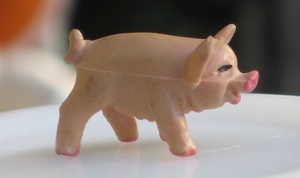You want bonuses, Wall Street style? Here are the ones Mitt Romney handed out at Bain in order to extort a government bailout for a failing company. It’s simply unbelievable. Tim Dickinson of RollingStone writes about it in an Aug. 29 column, having deciphered over 500 pages, heavily redacted, from Freedom Of Information Act (FOIA) requests concerning Bain, in the early 1990s when Mitt Romney was working there for the second time.
This is after Romney was given his little berth at Bain Capital. The parent company, Bain & Co., asked Romney to step back in and handle restructuring Bain’s considerable debt. This was 1991, and Bain was doing horribly, and putting Romney in charge did not solve things; the negotiations he attempted with their creditors were not successful. The creditors, you know, just wanted to be paid.
Therefore — since the FDIC had a significant stake in Bain — Romney threatened to basically ruin the company if the government didn’t help them out with money. He told the FDIC and the other companies Bain owed money to that he planned to hand out very large bonuses to the executives and management, thus depleting the cash reserves, if all the creditors would not agree to reduce Bain’s debt by 65%. He wanted to pay just 35 cents on the dollar of what Bain owed.
According to the paperwork, Romney was permitted to hand out bonuses regardless of performance.
And the debt-restructuring agreement said ALL the creditors had to say a change to 35 cents on the dollar was okay, or he’d carry out his bonus plan.
But a few of the creditors thought it was a bluff, and they called it. They refused. So he gave out bonuses large enough to alarm analysts, who advised the federal government that they believed Bain was headed for trouble.
Matt Taibbi, also in RollingStone, explains Romney’s business actions: Mitt was “looting the cash reserves.” Interesting that he did this as a general strategy and not simply when in takeover mode against another firm. In this instance, it was the serious, adult version of a child threatening to hold his breath until he gets what he wants. When adults do it, they’re typically threatening to blow up something. And Romney was threatening to destroy Bain if the government didn’t step in and take care of them financially.
That first threat did not achieve what he’d wanted. So he tried again, announcing he’d do another bonus round of cash to management if all Bain’s creditors didn’t agree to — a new amount — 30 cents on the dollar for what Bain owed. As was evident in the documents, the FDIC was facing significant losses to the value of their piece of Bain. Analysts told the federal government that at this point in time (Aug. 1992) that Bain had defaulted on the revenue targets of the loan agreement they had, and was headed toward bankruptcy. They said Bain & Company had “no value as a going concern.”
Bain got its bailout, of $10 million, and it is difficult to believe the FDIC didn’t pressure the other creditors to sign on to the debt agreement, in which Bain only had to pay its creditors 30 cents on the dollar. Because by this time Romney had already awarded that second round of bonuses.
He’d just extorted the U.S. government successfully.
